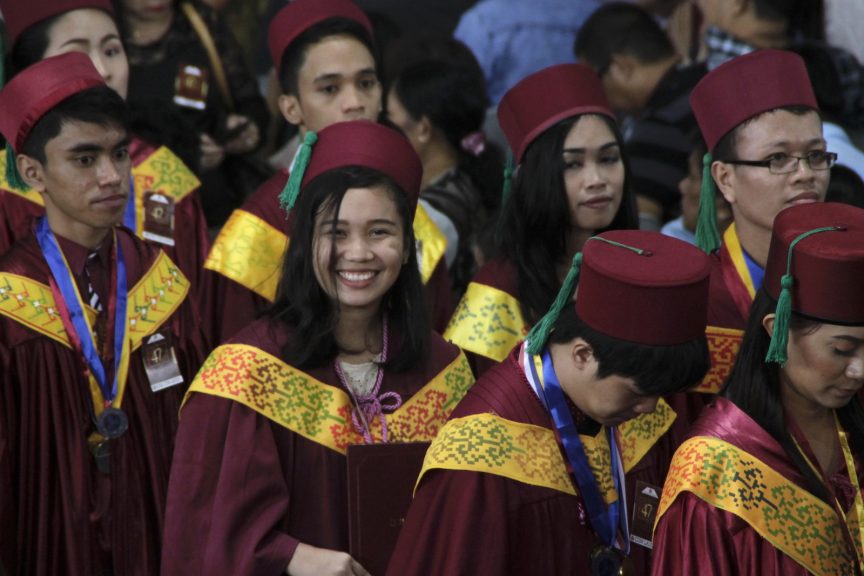DAVAO CITY (MindaNews / 23 April) – The government should give more support to Filipino scientists and increase budget for projects related to science and technology innovation because this will lead to progress, a scientist from the University of the Philippines-Diliman.
 Chemistry graduates from Mindanao State University-Iligan Institute of Technology. Government needs to allot a bigger budget for science and technology. MindaNews file photo by H. MARCOS C. MORDENO
Chemistry graduates from Mindanao State University-Iligan Institute of Technology. Government needs to allot a bigger budget for science and technology. MindaNews file photo by H. MARCOS C. MORDENO
In an interview during the 2nd ASEAN Science Diplomat Assembly at the Ritz Hotel here, Dr. Richard Lemence, assistant professor at the Institute of Mathematics at the UP-Diliman, said the country should catch up with Southeast Asian neighbors Thailand, Indonesia, and Malaysia which are now giving special attention to science and technology innovation.
“If you have that, you have to make sure people are able to understand why you are prioritizing science and technology innovation because this will lead to progress. There is a need for government, policymakers and scientists to talk about policymaking that will lead to a better Philippines,” he said.
Lemence, one of the 16 scientists from the ASEAN member states participating in the assembly that runs from April 23 to 27, said it’s about time to strengthen the collaboration between government and scientists.
He said the government should make scholarships and research funds more available to Filipino scientists.
He said the government currently apportions smaller budget for science and technology but added it should set aside a bigger budget for agencies that need new technologies such as the Departments of Environment and Natural Resources, Agriculture, and Science and Technology.
He said the government could make sound science-based policies with the help of experts.
“Those policies that our policymakers make about science should be based on probably the recommendation of the scientists. You cannot just make scientific policies without tapping or asking the expertise of those people who are in science and technology,” Lemence said.
He lamented that the country lacks policies supporting science and technology.
However, he added that the situation of Filipino scientists has quite improved compared to that between 1980 and 1990 where it was difficult to access funds for research and development.
“There is no way scientists could ask money from the government. If there was, it was very difficult,” he added.
Organized by the Environmental and Climate Research Institute of De La Salle Araneta University, the Mindanao Development Authority, and the Harvard Kennedy School Alumni Association of the Philippines, the five-day assembly aims to gather outstanding scientists and engineers in the ASEAN region who will be trained in scientific language communication in the context of climate change and energy.
A briefer released by MinDA said the assembly aims to enhance regional and international cooperation to address the issues of climate change and its impact on socio-economic development, health, and the environment through the implementation of mitigation and adaptation measures, training, and capacity building.
It also seeks to address communication gaps for effective implementation of programs addressing problems in climate change, food security, water sufficiency, and sustainable energy. (Antonio L. Colina IV/MindaNews)
